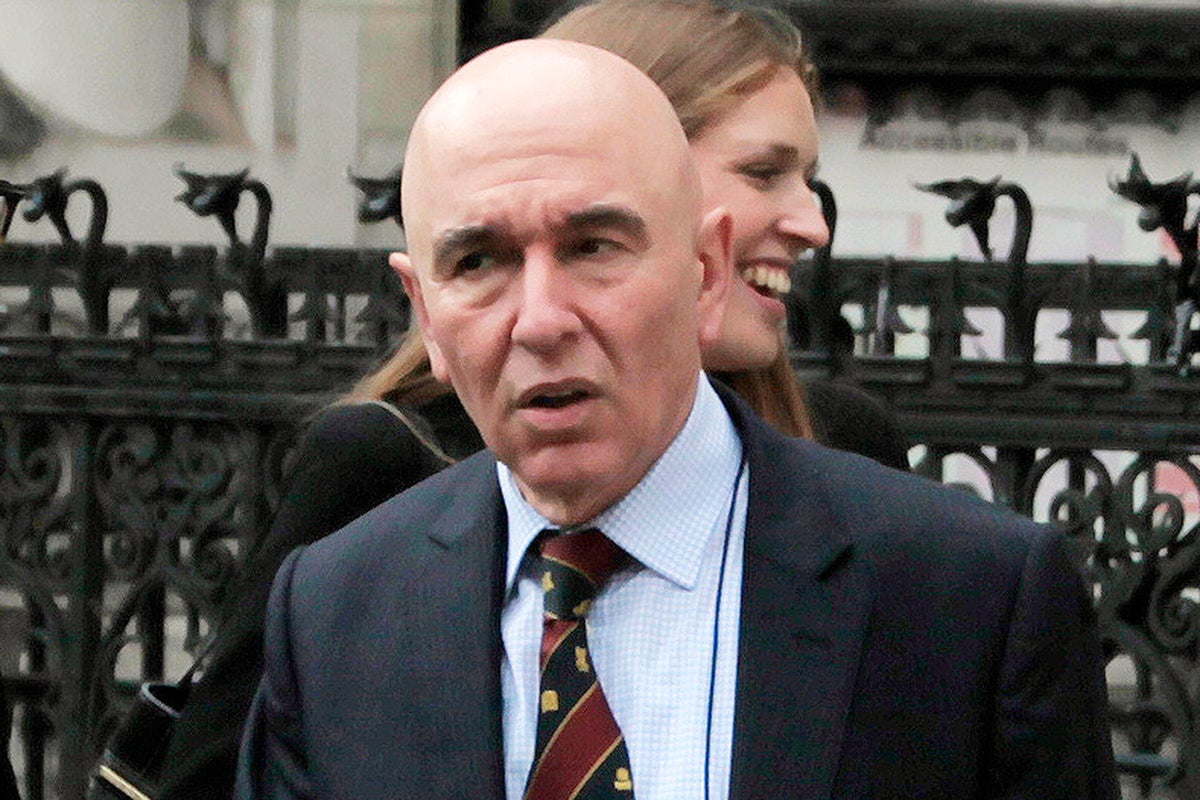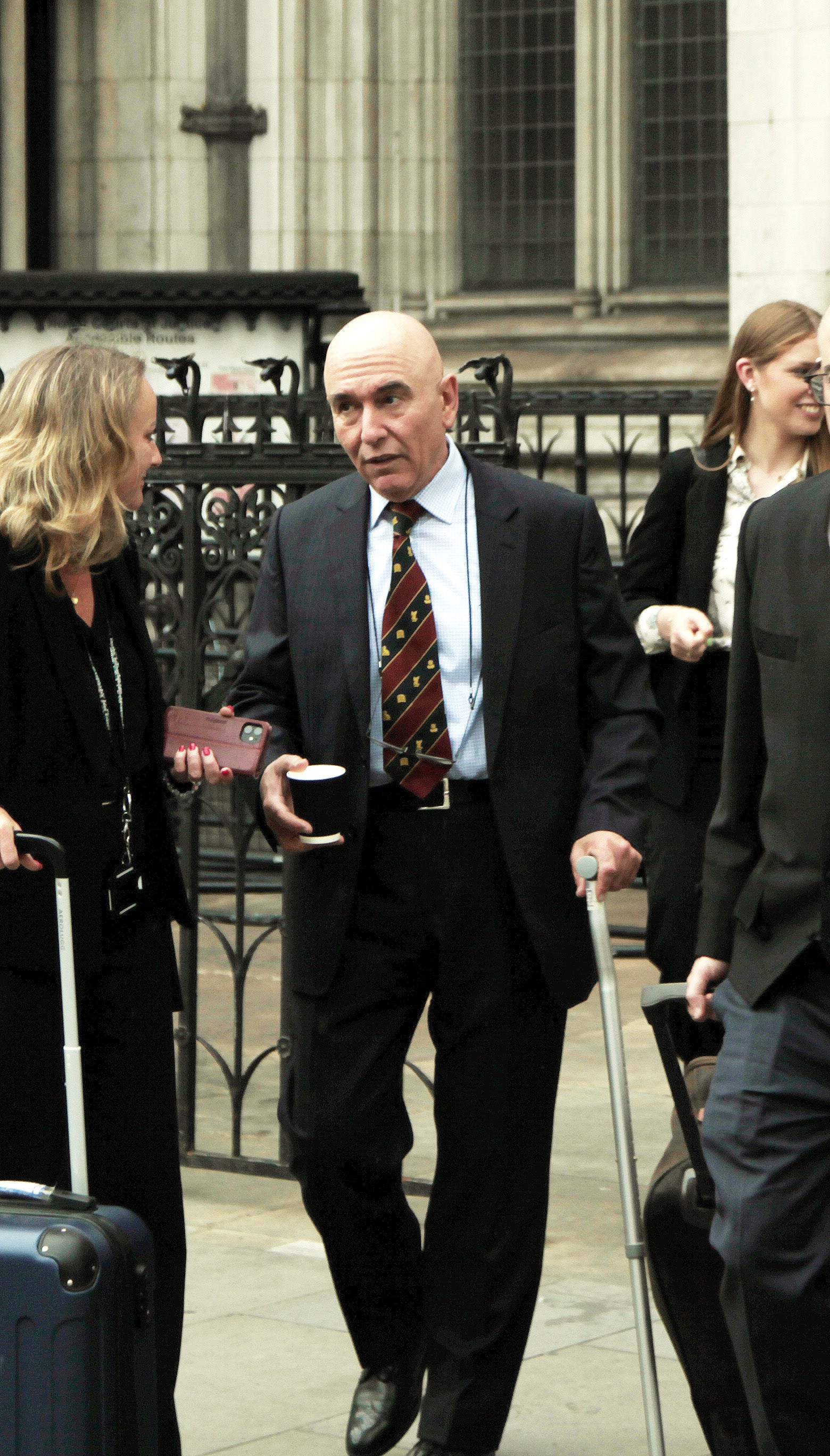
A Cambridge University professor has been accused of deliberately flunking IQ and memory tests in a bid to boost a £1m brain damage compensation claim over botched treatment for a stroke.
Orthopaedic surgeon and Cambridge school of medicine lecturer Dr Mohamed Atef Hakmi, 64, was left with permanent disabilities and had to give up surgery after suffering a stroke at home in November 2016.
Claiming a failure to promptly diagnose his stroke meant he missed the chance of vital treatment, resulting in brain damage and physical disabilities, he is now suing the NHS in London's High Court for more than £1million damages.
But after scoring only a "very bad" 84 on a pre-trial IQ test as part of the case - putting him well below the UK average, despite continuing to teach at one of the world's most prestigious universities - Dr Hakmi has been forced to deny deliberately throwing the tests to boost his claim.
Dr Hakmi is a Hertfordshire-based orthopaedic surgeon and medical educator, who specialises in foot and ankle surgery, as well as lecturing in the UK and abroad.
He is a fellow of the Royal College of Surgeons and an affiliated assistant professor at Cambridge University, where he performs a teaching role, the court heard.
He first suffered a stroke in September 2016, but was given clot-busting thrombolysis treatment and made a very good recovery, returning to the operating theatre within weeks.
But his barrister, Robert Kellar KC, told Judge David Pittaway KC that the surgeon had suffered a second stroke in November 2016, first spotting the symptoms while he worked late at night on paperwork.
Warning signs of a stroke
What are some early warning signs to look out for?
The signs and symptoms of a stroke vary from person to person, as different parts of the brain are often affected.
However, there are some common symptoms to look out for which can be remembered by using the acronym F.A.S.T – which stands for Face, Arms, Speech and Time.
“Face – their face may have dropped on one side, so check if the person can smile and see if their eye or mouth has drooped on one side,” says Rai. “Arms – there may be arm weakness on one side so check if the person can raise both arms.
“Speech – their speech may be affected and become slurred so check if the person can speak clearly and understand you. And T is for Time – as it is time to call 999 immediately if you see any of these signs.”
Bouverie adds: “Other signs of a stroke can include blurred vision, memory loss, feeling dizzy or confused and unsteady on your feet and experiencing a severe headache. All of these symptoms can come on suddenly.”
When the symptoms returned again in the early hours, he went to Lister Hospital, in Stevenage, calling ahead and telling staff that he was having a stroke, said the barrister.
However, he was not given the same treatment as before after being examined by an A&E doctor and then having spoken to a stroke specialist on the phone in line with the NHS' remote stroke treatment system.
He says he was told he would not be offered thrombolysis because he was "not having a stroke," with the remote doctor suggesting it could be simply a migraine or epilepsy.
It was not until 9am that day that his stroke was diagnosed at the hospital, at which point it was too late to be treated with the same drugs as before.
Dr Hakmi accuses the NHS of "cumulative and inter-related" failings, including a "cursory and sub-standard examination" in A&E and the fact that he was only able to speak to the remote stroke specialist on the phone due to the NHS' Telemedicine system malfunctioning.
Mr Kellar said Dr Hakmi had been left permanently disabled by the stroke, but that the worst of the injuries could have been avoided if not for the negligence of staff at Lister and on the remote stroke line.
As well as a limp and reduced sensation in his fingers and toes, he suffers from fatigue in his right arm, hand and grip, preventing him performing complex tasks for long periods.
He was also left with a brain injury, which has resulted in short-term memory impairment, impaired concentration, reduced processing speed and "executive deficits."
"His confidence is low, and he is experiencing significant depressive symptoms due to physical, cognitive, speech, and language issues resulting from his second stroke, which are negatively affecting important aspects of his life," he said.
"Thus, Dr Hakmi presents with cognitive deterioration, including intellectual functioning, memory, the speed at which he is processing information and executive functioning.
"At the time of the index incident, he was undertaking full-time NHS employment and had a busy private practice.
"He no longer has any private practice. He has returned to his NHS employment but is undertaking restricted duties because of the issues arising from his second stroke.
"He no longer does any surgery. But for the breach of duty, the claimant is likely to have made a good recovery. He would have been able to return to all types of surgery that did not require a high degree of manual dexterity."

But NHS barrister John de Bono KC denied that Dr Hakmi is due any damages payout at all and accused him of hamming up his symptoms while being assessed by experts before the trial.
As well as the "very bad" IQ score, he had scored at the very bottom of the range in memory tests, the barrister told the court.
He said that Dr Hakmi had scored only 84 on an IQ test, putting him below 86% of the general population, adding: "That's very bad - it suggests it would be hard to function as a surgeon or as an educator at that level."
He had also been assessed by two neuropsychologists, who had performed memory tests, with "very surprising" and sometimes "astonishing" results which he said raised a "serious concern about whether he was putting forward his best effort" in the tests.
Dr Hakmi was unable to recall more than four single digit numbers in a row during one examination and scored so low in the tests that in some respects he was below 99% of the population, despite continuing to work as an "educator" at undergraduate level.
"You scored astonishingly badly for someone operating at the level you are describing this morning," he said, referencing the fact Dr Hakmi had spoken with pride in the witness box of his work with Cambridge University.
"I understand you feel very strongly that you have suffered greatly as a result of this second stroke," he continued.
"I understand that you feel the reason you have suffered as badly as you have is because of mistakes or negligence. I understand it must make you angry."
He went on to suggest that Dr Hakmi's "sense of injustice" may have led to a desire to make sure that "people fully understand the impact this has had on you."
"Is it possible when you went to be tested that you performed worse than you should have done because you were trying to demonstrate to them just how big the impact had been?
"One possibility which I put to you is that you were deliberately underperforming."
But Dr Hakmi denied playing up for the medics who assessed him pre-trial, telling the court he had found the tests "exhausting."
He denied being dishonest with the doctors, telling the judge, "it was an exhausting environment when the tests were done in a lengthy and not organised manner.
"Anybody can fail a test but they must be given the best chance," he continued.
"I definitely have a memory problem, slow effort. I have done everything to mitigate my losses. I know definitely I'm not as before I had the stroke."
Mr de Bono pressed on, referring to a "memory and malingering" test which had resulted in a score "very nearly at chance level," telling Mr Hakmi: "Someone giving random answers would nearly have scored as badly as you."
Accusing him of "not being straightforward" with those who assessed him pre-trial, he said: "There is a pattern emerging. In any given situation, you will try and say whatever you think is going to help you most to achieve whatever your aim is."
But Dr Hakmi hit back: "I have been straightforward in everything in my life. I have aimed to be a surgeon again, but I have failed."
The damages claim is against the East and North Hertfordshire NHS Trust, which runs the Lister Hospital, and the Norfolk and Norwich University Hospital NHS Foundation Trust, where the remote stroke doctor who spoke to Dr Hakmi was based.
The trusts both deny blame, saying he was "at all times treated with reasonable care and skill by highly competent clinicians."
He was assessed as being unsuitable for thrombolysis treatment because his symptoms were not serious enough and it was too late after the onset of his symptoms.
Such treatment can also be risky, carrying a significant risk of brain haemorrhage and death, said the NHS barrister, and even if he had been given it the outcome would probably have been the same.
The trial continues.
Researchers warn California fish carry parasites that can cause stroke, heart attack
Catholic students find refuge at Princeton University's worship space and cheer new pope
Nine-year-old girl dead and 11-year-old critical in blaze which also kills man
Vegetarians are more power-hungry than meat eaters, research suggests
Family ‘shattered’ after body found in search for missing teenager
Getty Images’ legal action against AI firm is ‘day of reckoning’







